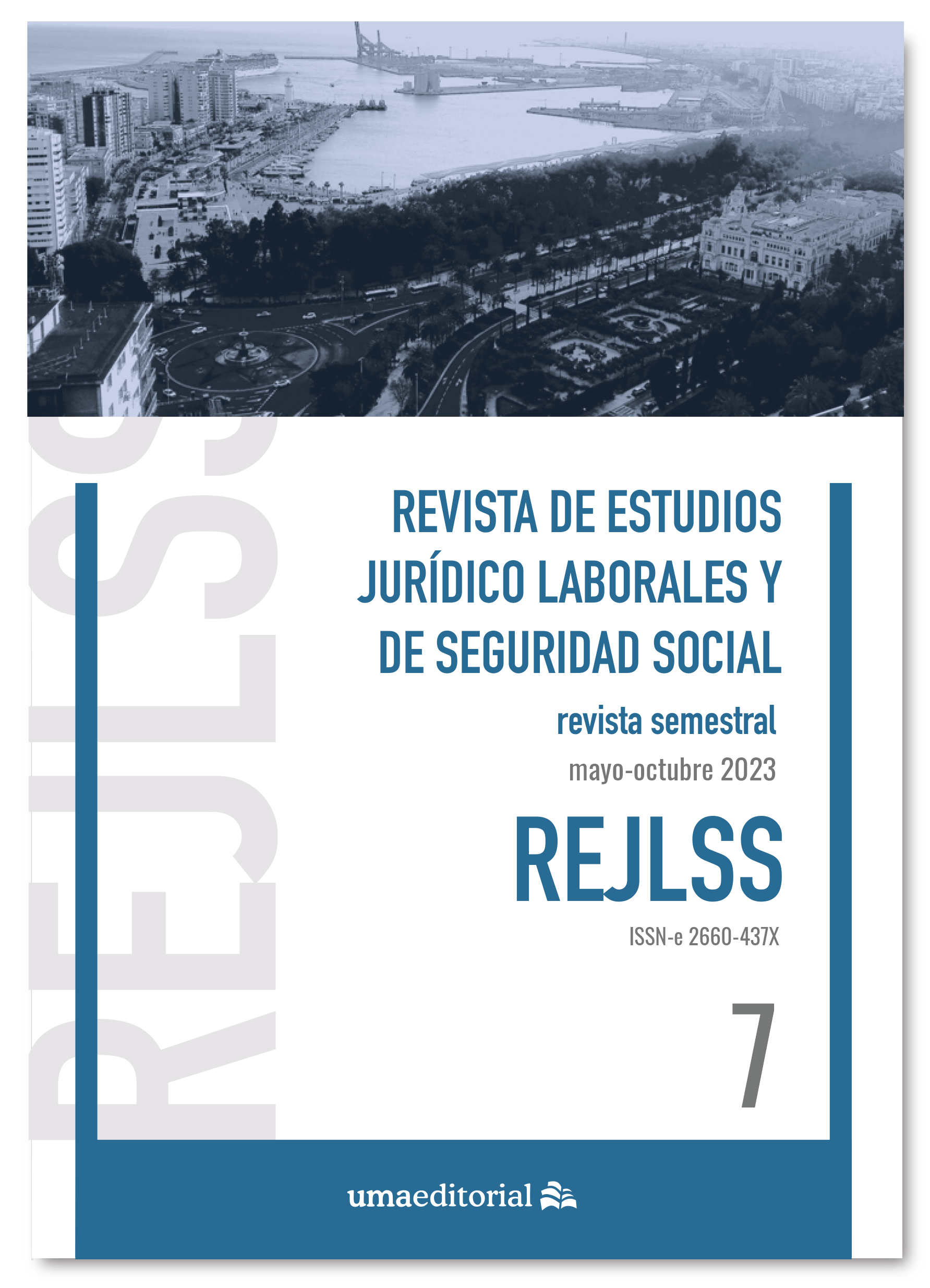Labor Regulation in Spain of Digital Platforms
Present and future
DOI:
https://doi.org/10.24310/rejlss7202317079Keywords:
digital platform, rider, employment, economically dependent self-employedAbstract
The so-called Rider Law (Law 12/2021), the result of a social agreement, establishes a presumption of employment in the field of digital merchandise delivery platforms. This presumption associates employment with the organization, direction and control directly, indirectly or implicitly, through the algorithmic management of the service or working conditions, through a digital platform. Our study is not so much an analysis of the conditions of this presumption, which has been the subject of doctrinal attention, but of the consequences of its application in the two years of validity of this norm. The reality shows that the sector of digital merchandise delivery platforms continues to operate with corrected models of self-employment and that, in companies with freedom of choice for the rider, the presence of self-employment is overwhelming. The application of this Law has therefore created great frustration. In this article we investigate the causes of this conflict between normative desire and reality. On this basis, we analyze the path that the draft European directive on digital platforms already marks, with greater legal certainty and flexibility. And, from these considerations, we provide proposals for the regulation of digital platforms that do not lead to this transformation, opening three models: special employment relationship, fleets and economically dependent self-employed with social protection.
Downloads
Metrics
Publication Facts
Reviewer profiles N/A
Author statements
Indexed in
-
—
- Academic society
- N/A
- Publisher
- Universidad de Málaga. UMA Editorial
References
Esteve Segarra, A. y Todoli Signes, A., “Cesión ilegal de trabajadores y subcontratación en las empresas de plataformas digitales”, Revista Derecho Social, núm. 95, 2021.
Jurado, A., “En torno a la externalización de actividades empresariales y la posible cesión ilegal de trabajadores en el ámbito de las plataformas digitales”, Labos, núm. 2.
Rodriguez-Piñero Royo, M., “Por fin la Ley Rider”, Blog Trabajo, persona y derecho, 2021, Universidad de Huelva.
Todoli Signes, A., “Cambios normativos en la digitalización del trabajo: comentario sobre la Ley Rider y los derechos de información de algoritmos”, Ius Labor, núm. 2, 2021.
Downloads
Published
How to Cite
Issue
Section
License
Copyright (c) 2023 Jesús Lahera Forteza, Valeriano Gómez Sánchez

This work is licensed under a Creative Commons Attribution-NonCommercial-NoDerivatives 4.0 International License.
In the Revista de Estudios Juridico Laborales y de Seguridad Social (REJLSS) we are clearly committed to a policy of open access to scientific knowledge (See Berlin Declaration).
Those authors who have publications with this journal accept the following terms:
This journal provides immediate free access to its content under the principle of making research freely available to the public. All the contents published in the REJLSS are subject to the Creative Commons license
Attribution-NonCommercial-NoDerivatives 4.0 International (CC BY-NC-ND 4.0)
Copyrights are of two kinds: moral and patrimonial. Moral rights are perpetual, inalienable, non-transferable, inalienable, unattachable and imprescriptible prerogatives. In accordance with Spanish copyright legislation, the authors who publish in REJLSS retain the moral right over their work, as well as the ownership of the patrimonial right, which will be transferred to the University of Malaga for its dissemination in open access.
The patrimonial rights, refer to the benefits that are obtained by the use or disclosure of the works. REJLSS is published in open access and is exclusively authorized to perform or authorize by any means the use, distribution, dissemination, reproduction, adaptation, translation or transformation of the work.
It is the responsibility of the authors to obtain the necessary permissions of the images that are subject to copyright.
Authors whose contributions are accepted for publication in this journal retain the non-exclusive right to use their contributions for academic, research and educational purposes, including self-archiving or depositing in open access repositories of any kind.
The electronic edition of this magazine is edited by the Editorial of the University of Malaga (UmaEditorial), being necessary to cite the origin in any partial or total reproduction.
The authors may adopt other non-exclusive license agreements for the distribution of the version of the published work (eg: deposit it in an institutional telematic archive or publish it in a monographic volume) provided that the initial publication is indicated in this magazine.
Authors are allowed and recommended to disseminate their work through the Internet (eg, in institutional telematic archives or on their website) before and during the submission process, which can produce interesting exchanges and increase citations of the published work.







19.png)
